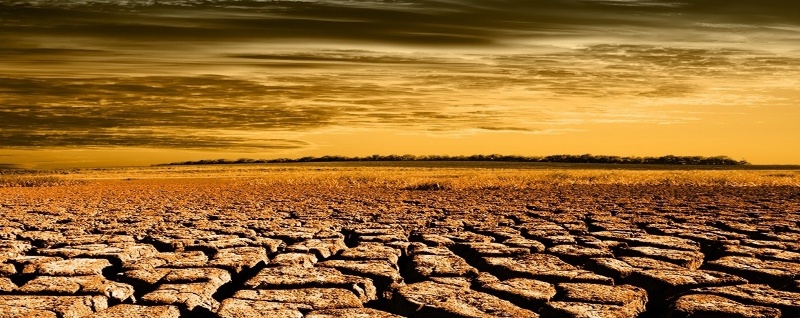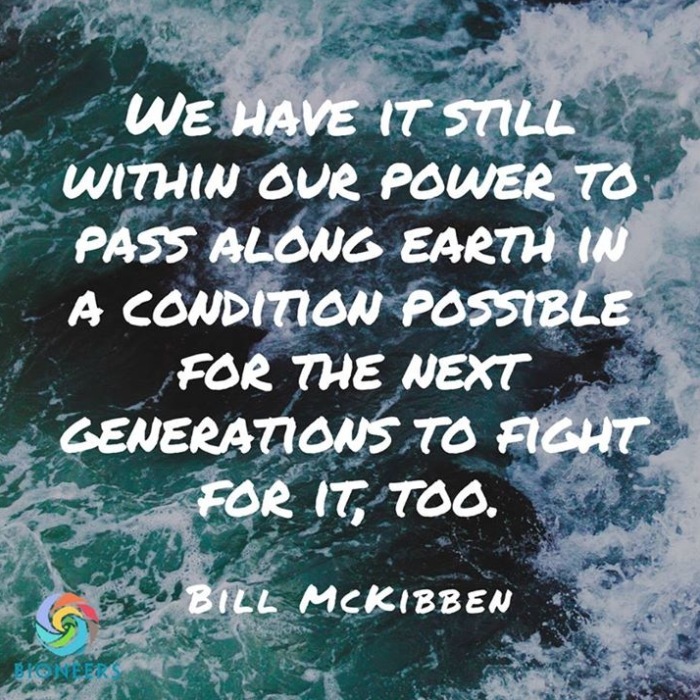File:We are now truly in uncharted territory-Falter.jpg
We_are_now_truly_in_uncharted_territory-Falter.jpg (800 × 318 pixels, file size: 161 KB, MIME type: image/jpeg)
Bill McKibben, Planet Citizen
- Planet Citizens
- Time for Planet Citizen Action
• https://www.greenpolicy360.net/w/Bill_McKibben,_planet_citizen
Bill McKibben, GreenPolicy360's former adviser, writes of climate change, global warming, and the resulting existential threat we all face
It's Not on the Way, It's Here, the Crisis is Here
Falter: Has the Human Game Begun to Play Itself Out? / Henry Holt and Co.
In the 30 years I’ve been working on this crisis, we’ve seen all 20 of the hottest years ever recorded. So far, we have warmed the earth by roughly two degrees Fahrenheit, which in a masterpiece of understatement the New York Times once described as “a large number for the surface of an entire planet.” This is humanity’s largest accomplishment, and indeed the largest thing any one species has ever done on our planet, at least since the days two billion years ago when cyanobacteria (blue-green algae) flooded the atmosphere with oxygen, killing off much of the rest of the archaic life on the planet. “Faster than expected” is the watchword of climate scientists—the damage to ice caps and oceans that scientists (conservative by nature) predicted for the end of the century showed up decades early. “I’ve never been at a climate conference where people say ‘that happened slower than I thought it would,’” one polar expert observed in the spring of 2018. At about the same time, a team of economists reported that there was a 35 percent chance that the United Nations’ previous “worst-case scenario” for global warming was in fact too optimistic. In January 2019 scientists concluded the Earth’s oceans were warming 40 percent faster than previously believed.
“We are now truly in uncharted territory ... physical threats so different in quantity that they become different in quality, their effects so far-reaching that we can’t be confident of surviving them with our civilizations more or less intact. One is large-scale nuclear war; it’s always worth recalling J. Robert Oppenheimer’s words as he watched the first bomb test, quoting from Hindu scripture: “Now I am become Death, the destroyer of worlds.” So far, the cobbled-together and jury-rigged international efforts to forestall an atomic war have worked, and indeed, for much of the last 50 years those safeguards, formal and informal, have seemed to be strengthening. That we have nuclear nightmares again is mostly testimony to the childishness of President Trump and his pal in North Korea—they seem nearly alone in not understanding “why we can’t use them.”
Second on that list of threats is the small group of chemicals that, just in time, scientists discovered were eroding the ozone layer, a protective shield that 99 percent of us didn’t even know existed. Had those scientists not sounded the alarm, we would have walked blindly off a cliff—literally, in many cases, as cataracts are one of the most common symptoms of being bathed in the ultraviolet radiation that the ozone layer blocks. Within a decade, the chemical companies had ceased their obstruction and the Montreal Protocol began removing chlorofluorocarbons from the atmosphere. The ozone hole over the Antarctic now grows smaller with each decade, and now scientists expect it will be wholly healed by 2060.
And the third, of course, is climate change, perhaps the greatest of all these challenges, and certainly the one about which we’ve done the least. It may not be quite game-ending, but it seems set, at the very least, to utterly change the board on which the game is played, and in more profound ways than almost anyone now imagines. The habitable planet has literally begun to shrink, a novel development that will be the great story of our century....
○
○
File history
Click on a date/time to view the file as it appeared at that time.
| Date/Time | Thumbnail | Dimensions | User | Comment | |
|---|---|---|---|---|---|
| current | 21:08, 29 April 2019 | 800 × 318 (161 KB) | Siterunner (talk | contribs) |
You cannot overwrite this file.
File usage
The following 2 pages use this file:
- Anthropocene
- Atmospheric Science
- Bioneers
- Citizen Science
- Climate Change
- Climate Policy
- Desertification
- Earth Observations
- Earth360
- Earth Science
- Ecology Studies
- Environmental Protection
- Environmental Security
- Extinction
- Global Warming
- Green Best Practices
- Green Networking
- Green Politics
- Natural Resources
- Ocean Science
- Planet Citizen
- Renewable Energy
- Resilience
- Sea-Level Rise & Mitigation
- Sustainability Policies
- Whole Earth

